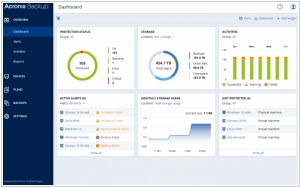Acronis vs Crashplan
August 12, 2023 | Author: Michael Stromann
12
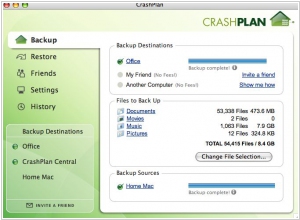
CrashPlan backup software offers the best way to back up and store personal, business and enterprise data securely - offsite, onsite and online in the Cloud. CrashPlan makes it easy to protect your digital life, so you can get back to what’s important in real life. Even when you step away, CrashPlan is busy at work protecting all your important files. Music, photos and documents are all automatically, continuously protected, so you can get back to whatever life throws your way.
Acronis and Crashplan stand as two notable contenders in the realm of data backup and protection, each catering to distinct user needs. Acronis offers a robust suite of backup and disaster recovery solutions that span from individual users to enterprises. With features such as versatile backup options, disk imaging, and ransomware protection, Acronis focuses on providing comprehensive data security and recovery services. On the other hand, Crashplan specializes in user-friendly and automated cloud backup solutions, appealing to individuals and small businesses. Renowned for its seamless continuous backup, Crashplan ensures data safety through real-time updates without requiring user intervention.
See also: Top 10 Online Backup services
See also: Top 10 Online Backup services
Acronis vs Crashplan in our news:
2021. Acronis raises $250M to double down on cyber protection services
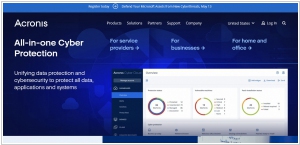
As the landscape of malicious activities becomes increasingly complex and dangerous, the importance of cybersecurity continues to rise. Acronis, a specialized cyber security vendor offering comprehensive "all-in-one" services, has recently secured $250 million in funding. Originally a spinoff from the parent company of virtualization giant Parallels, Acronis initially gained recognition for its expertise in data recovery and backup solutions. However, in order to differentiate itself from competitors like Commvault, Veeam, and Barracuda, Acronis has expanded its offerings over time. It now provides a comprehensive package of services, including continuous data protection, patch management, anti-malware protection, and more, aiming to cater to the diverse needs of its customers.
2017. CrashPlan shuts down its consumer cloud backup service to focus on business version
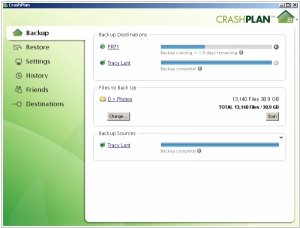
Popular cloud backup service CrashPlan has announced its decision to discontinue home subscriptions and shift its focus towards its business version, Code42. This move provides customers with a little over a year to find an alternative solution. Services like CrashPlan, Backblaze, and Carbonite have simplified the process of online backup, allowing users to subscribe and install a background app that automatically handles the backup process. CrashPlan has been a leading player in this market. However, the company has realized the potential for greater profitability by catering to larger enterprise customers. Hence, Code42 is providing ample time for its customers to transition away from CrashPlan, recognizing that uploading an entire hard drive can be a time-consuming process.
2015. Code42 snares $85M for its Crashplan
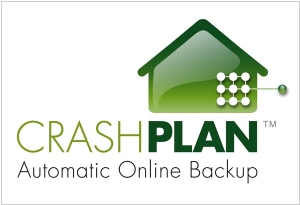
Code42, the company behind the enterprise backup tool Crashplan, has announced a significant funding round of $85 million. Originally developed as a laptop backup solution, Crashplan transitioned to cater to the enterprise market and has been experiencing rapid growth, with a yearly increase of 100 percent, as stated by Payne, a representative of Code42. One of the key advantages of Crashplan is its user-friendly nature, often requiring minimal IT involvement once implemented. Automatic file backups are performed, and Payne asserts that end users can restore files themselves in the majority of cases. The tool is platform-agnostic, extending its backup capabilities to Macs and Linux machines, and it leverages cloud storage, enabling users to retrieve their files from anywhere, including new devices. It's important to distinguish backup from storage: while storage involves keeping data on a hard drive, backup serves as a contingency plan in case of data loss, allowing users to recover their files. Crashplan focuses on backing up laptops and mobile devices rather than the entire data center.

